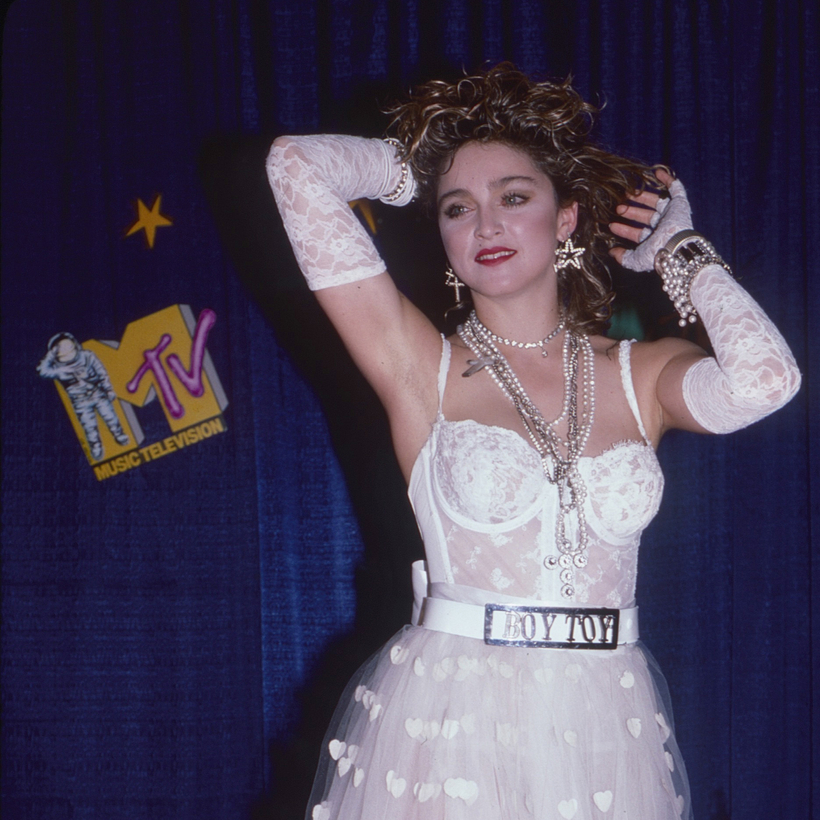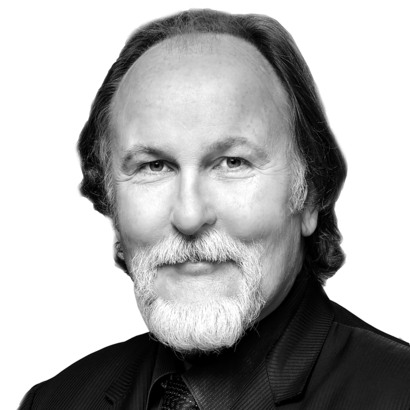Last month, I got a barrage of texts and e-mails from friends, relatives, and former colleagues reacting to headlines such as “MTV to Shut Down Music Channels After 40 Years” (GeekSpin) and “MTV 1981-2025” (CNBC TV18). Some of the messages I got were snickering, some were nostalgic, some were enjoying a little Schadenfreude.
On CNBC TV18, a young woman announced, “It’s the end of an era. MTV is shutting down its legendary music channels after 40 unforgettable years.”
As headlines go, it was a grabber, but it was misleading. All that was happening was that Paramount, the company formerly known as ViacomCBS, was dropping five ancillary music services in the U.K. (MTV 80s, MTV 90s, MTV Music, Club MTV, and MTV Live) while keeping the main MTV channel. I wondered how many of the pundits calling this the end of an era had known that MTV 80s or Club MTV existed.
It seems like a lot of people still have strong feelings about MTV and its sister channels, years after they stopped watching them. MTV is like high school: we romanticize the good parts and forget the bad and boring stretches.
I spent 20 years at MTV Networks, from 1995 until 2015. For big chunks of that time, I worked with MTV International, Viacom’s collection of wholly owned stations, joint ventures, and local licensing partnerships that stretched from Australia to Europe to Canada.
MTV International took me from the underground music clubs of Beirut to floating through Bangkok on a V.I.P. party boat, to an MTV Video Music Awards show in the Kremlin, where the Red Guard marched under MTV banners while a Russian choir sang “We Are the Champions.” I was charged by a herd of elephants in South Africa after the launch concert for MTV Base, in Johannesburg. I was mugged in Salvador, Brazil, during a marathon outdoor performance by the legendary Drummers Collective. I survived a kidnapping attempt by an underqualified al-Qaeda wannabe in Mali.

One over-scheduled, three-week trip took me to Rome to work on an all-star concert organized by Quincy Jones, to a beach hotel in the United Arab Emirates, to three days of production meetings in India, to a one-day conference in Singapore, to Tokyo’s MTV Awards, to a week of meetings, dinners, and pitches in Beijing, to a download session in London, to losing my passport at Heathrow and finding it in the middle of the road just in time to stumble onto my flight home to New York. Like many of my former colleagues, I look back on it all as being a lot of fun.
The sale of Paramount Global to David Ellison’s Skydance Media, in August of this year, set off a round of chatter among my fellow Viacom alumni about whether Ellison’s team would re-invest in the fading MTV Networks brands—which also include VH1, Nickelodeon, CMT, and Comedy Central—or try to unload them, or even pull the plug. People who once worked at MTV Networks have strong opinions about where the company went wrong and how they would fix it. Those ideas tend to involve turning back the clock to whenever their incarnation of MTV was most successful. (Skydance did not respond to a request for comment.)
For some that means music—not just videos but performance shows like MTV Unplugged, Total Request Live, and the V.M.A.’s, and the genre-specific video programs Yo! MTV Raps and Headbangers Ball. Veterans of the reality-show era romanticize the days of The Real World and The Osbournes and Jersey Shore. There is a contingent of wise guys who maintain that the high mark for MTV came with Beavis and Butt-Head, Jackass, and Punk’d. What all those successful franchises had in common was that they were of their moment. The nature of the Zeitgeist is, when it’s gone, it’s gone.
Tom Freston was head of MTV Networks in its glory years, from the 1980s until his controversial ouster, in 2006. Before joining the start-up team that created MTV, in 1980, Freston had roamed the world and lived in India and Afghanistan. He pushed the brand to expand around the globe. MTV eventually operated out of more than 100 countries and staked a claim to being the first global television network. (CNN might contest that; it’s an ongoing debate.)

Today, Freston sees an opportunity for the new Skydance landlords. “MTV just needs to be reimagined for the on-demand digital world, and that’s a great opportunity for the new owners,” Freston says. “MTV has a fantastic library of news and specials and series that are music-based. Put more music equity into the brand. Staple the ‘Music Television’ back onto the bottom of the logo.”
Chilean Cristian Jofre, a former journalist, spent more than 15 years at Viacom, mostly based in London, where his title was International Creative Director of MTV Networks. Jofre resigned when he was told to remove the “Music Television” line from the MTV logo.
Jofre says it was odd that “MTV International was every country except the U.S.A.” He thinks there were problems with the American-based company regarding the rest of the world as one entity.
“It’s a complicated matter, the international scope of our beloved MTV,” Jofre says. “The international/expansion period was great for the brand; from music to branding to VJ’s to events, every channel/country had its own team, each with a strong director, marketing, programming.”

Jofre suggested that MTV International channels began with individual personalities and connected to local audiences but that “the push from the U.S.A. to run their shows globally was the beginning of the end. Most assets, creativity, and insight came from the U.S.A., and there was little to do for the local offices.”
I was surprised to hear Jofre say that; I remember that American MTV executives resented being told they had to give their hit shows to the international channels for free rather than be allowed to license them overseas to the highest bidder. Communication between the continents was worse than I had known.
Cyrus Oshidar ran MTV India for 10 years in the mid-90s. He says that popular music in India before MTV meant Bollywood love songs: “‘How much I love you, how many ways I love you, how many lifetimes I will love you for, kill me now and I’ll come back and love you.’ We did not have the history of the protest song, nor its angry lyricism.”
“The voice-overs on Indian TV were always upper class and perfect. Ours were not. Far from it,” Oshidar explains. “Our countdown shows used the voices of vegetable salesmen. Our promo soundbeds were layered with car honks, people clearing their throats, cows mooing, traffic, and anything else. It carried the spirit of youth in its tone and manner and was not apologetic for its imperfections—in fact, it celebrated them, and people liked that.
“MTV India soon became a voice for young people, not just an entertainment channel. In a hierarchical and structured society, MTV provided a place where the youth had a voice of their own. They didn’t really have one before—and it was not quiet and subdued as young people were in traditional society but loud and boisterous, opinionated and irreverent and demanding to be heard.”
Could that spirit be revived? Oshidar is not optimistic: “Fuck knows, man. I doubt it. Let it retire as the heavyweight champion of the world.”
Jofre remembers when he decided that the good times were over. “For years I used to go to 1515 [Broadway, MTV’s headquarters] to visit the executives,” he recalled. “I started to see how the monitors in their offices were not running MTV anymore. They were replaced by Bloomberg News. William S. Burroughs is eloquent on that: ‘What does the money machine eat? It eats youth, spontaneity, life, beauty, and above all, it eats creativity. It eats quality and shits quantity.’”
I wish the new owners the best with the MTV brands they have inherited. Those channels meant a lot to a lot of people, and I suspect there is potential in them still. But the ideas that revitalize MTV won’t come from the Viacom alumni. They will come from young creatives with inspiration based on their own passions and the energy to get chased by elephants.
Bill Flanagan, an Editor at Large for AIR MAIL, contributes essays to CBS News Sunday Morning and hosts Flanagan’s Wake and Northern Songs on SiriusXM Radio


